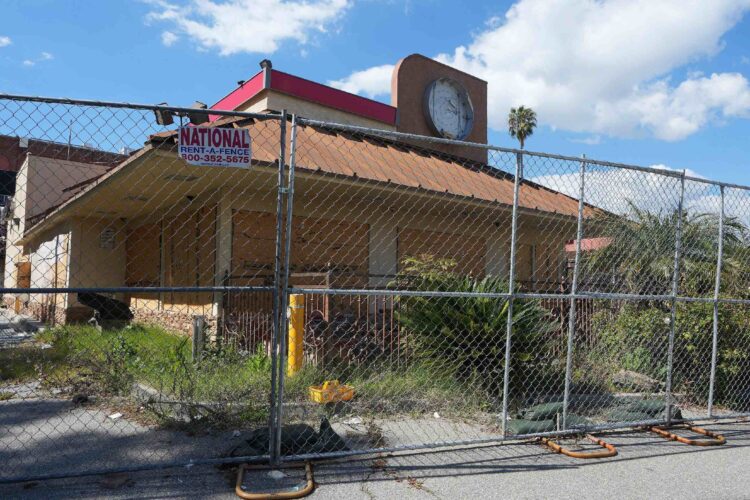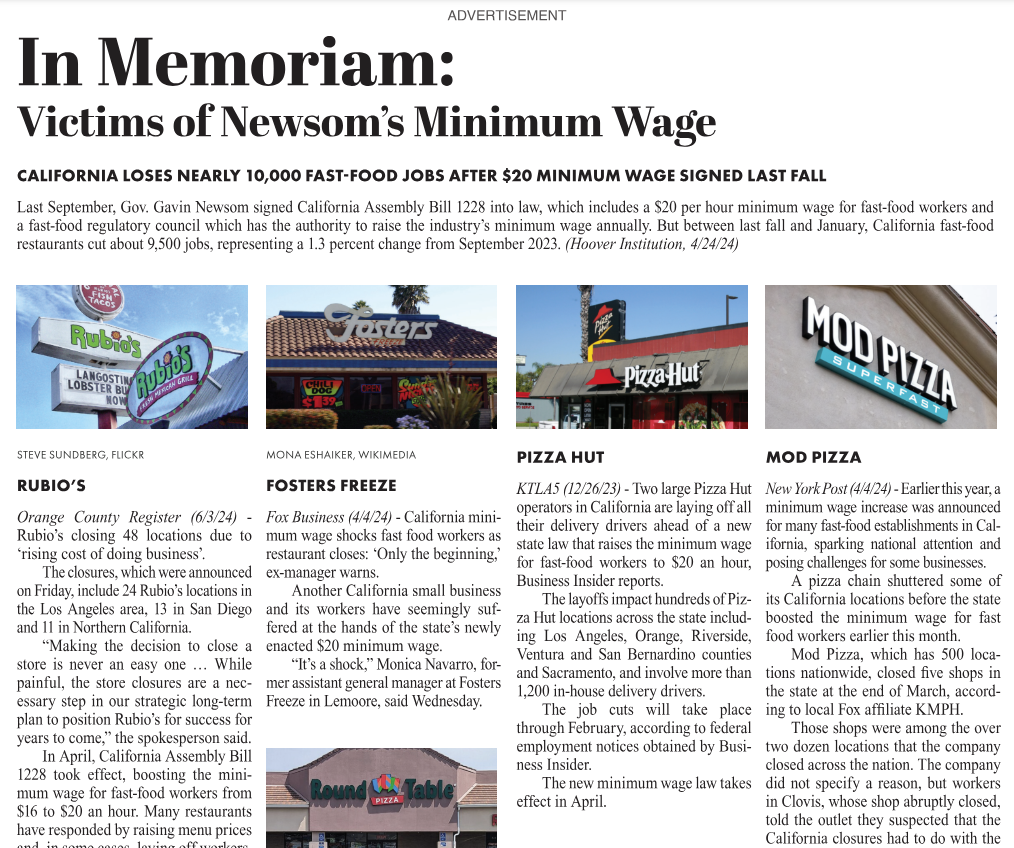Over 10,000 fast food jobs in California have been cut due to the state’s $20 minimum wage, according to the California Business and Industrial Alliance (CABIA) and the Hoover Institution.
CABIA, a trade organization founded by business owners and entrepreneurs in 2017 to attack the Private Attorneys General Act (PAGA), took out a full-page ad in the statewide edition of USA Today. Titled “In Memoriam: Victims of Newsom’s Minimum Wage,” the ad features mock obituaries of positions at various fast food locations throughout the Golden State. Some of these include Fosters Freeze, which closed a location; Pizza Hut, which had two of its operators in California lay off all their delivery drivers; Mod Pizza, which closed five stores; Excalibur Pizza, which is cutting 21 percent of its workforce; Subway, which shrank by 443 locations last year; and a Californian owner of 140 Burger King franchises cutting workers’ hours and accelerating the implementation of self-serve kiosks.
Related: Chipotle Tests Robot that Can Assemble Burrito Bowls and Salads
“Last September, Gov. Gavin Newsom signed California Assembly Bill 1228 into law,” the text reads, explaining that it introduced a $20 per hour minimum wage and created a fast-food regulatory council to annually raise the industry’s minimum wage among other things.
“But between last fall and January, California fast-food restaurants cut about 9,500 jobs, representing a 1.3 percent change from September 2023,” it continued, citing an April study from the Hoover Institution, a conservative research and commentary organization based out of Stanford University. Since then, Hoover Institution reported that another 1,250 fast food jobs were “destroyed,” bringing the total number to 10,750.
Learn the benefits of becoming a Valuetainment Member and subscribe today!
Hoover linked to a 10News San Diego story about Rubio’s Coastal Grill closing 48 locations in California, keeping just 86 open through California, Arizona, and Nevada.
“Unprecedented wage hikes have unprecedented consequences, especially in California where the odds are already stacked against businesses,” said CABIA president Tom Manzo. “The rapid job cuts, rising prices, and business closures are a direct result of Governor Newsom and this short-sighted legislation. California’s business community and its workers deserve better. We need policies that support growth and stability, not ones that jeopardize livelihoods.”
“When governments raise the price of relatively unskilled labor by substantially raising the minimum wage, the number of unskilled workers employed will fall,” David R. Henderson of the Hoover Institution wrote in April. “What will be the effects on jobs of this high minimum wage for relatively unskilled workers? It will reduce them.”
California’s Fast Food Accountability and Standards (FAST) Recovery Act went into effect in March. As Valuetainment previously reported, fast food chains with 60 or more locations in the state of California (counted across individually owned franchises) are obligated to abide by the new $20/hour wage along with all subsequent annual wage increases. The previous average salary for food service workers in the state was $16.
 Shane Devine is a writer covering politics and business for VT and a regular guest on The Unusual Suspects. Follow Shane’s work here.
Shane Devine is a writer covering politics and business for VT and a regular guest on The Unusual Suspects. Follow Shane’s work here.



















Add comment